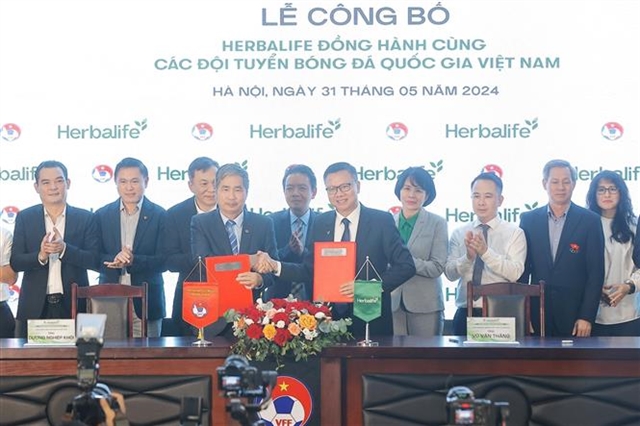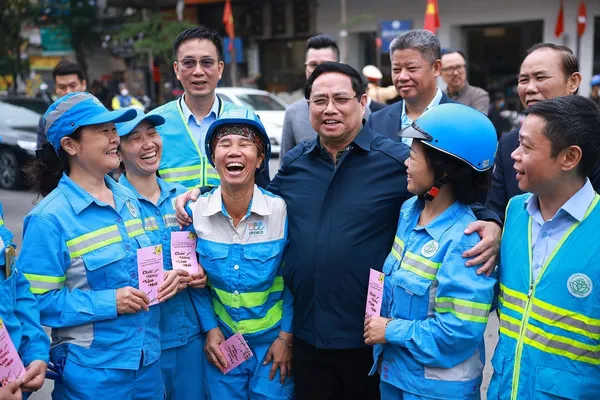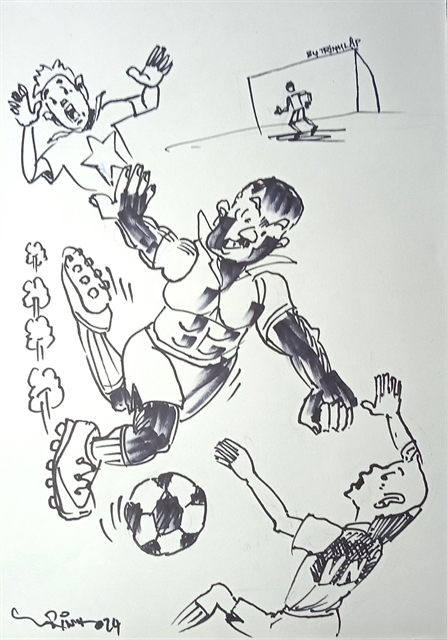 Sports
Sports

 |
| Illustration by Trịnh Lập |
By Thanh Nga
Achieving success abroad is often viewed as a "luxury dream" for Vietnamese football players, especially as many promising talents return home disappointed.
Take striker Nguyễn Công Phượng for example. His two-year spell in Japan, a country regarded as a footballing "promised land", ended with more frustration than success. His time at Yokohama FC saw him making coffee more than scoring goals.
Phượng’s return to Việt Nam, signing with First Division club Trường Tươi Bình Phước, highlights a concerning trend: at that time, no Vietnamese player was competing abroad. Despite high hopes, the dream of playing international football remains unfulfilled for many.
Phượng’s experience is not an isolated case. His fourth attempt to play overseas—following stints with Mito HollyHock in Japan in 2016, Incheon United in South Korea, and Sint-Truiden in Belgium in 2019—has deepened concerns among football fans about the capacity of Vietnamese players to succeed at higher levels. Other prominent players, such as Văn Hậu, Quang Hải, Tuấn Anh and Văn Toàn, also faced challenges abroad before returning home.
Opportunities to experience international competition are crucial in developing a strong national team. As Vietnamese football teams strive to reach continental standards, enhancing the quality of V.League 1 and attracting overseas talent has become increasingly urgent.
Over the past decade, Vietnamese football has seen a generation of players gradually meeting the standards of foreign clubs. Initially, many engaged in short training stints abroad, but the trend has shifted to longer commitments, often involving loan deals with foreign teams.
Some players, after their contracts expire in Việt Nam, actively seek opportunities overseas: Quang Hải signed with Pau FC in France in 2022, Công Phượng joined Yokohama FC in 2023, and Văn Toàn moved to Seoul E-Land in South Korea.
The period from 2016 to 2020 was particularly notable, with many players challenging themselves abroad. However, as this trend waned, the struggles these players faced discouraged others from pursuing similar ambitions.
Experts have highlighted the challenges Vietnamese players face in maintaining their places in foreign leagues, especially in Europe. Phan Anh Tú, former general secretary of the Việt Nam Football Federation, points to physical limitations as a significant barrier.
"While Vietnamese players selected to play abroad possess good skills, the intensity of foreign competitions exposes weaknesses in speed, endurance, and physicality. This disparity arises from the lower intensity of domestic tournaments, leaving them ill-prepared for the demands of foreign leagues," Tú said.
Despite these challenges, there are success stories. Female striker Huỳnh Như has made a name for herself at Lank FC in Portugal. However, women's football alone cannot represent the progress of the entire football industry.
The failures of prominent players abroad have also reduced opportunities for others. For example, Tuấn Hải has opted to remain with Hà Nội FC, despite a contract clause that could allow him to play overseas.
"Vietnamese players not only need to excel domestically, but they must also develop the physical attributes and adaptability required to compete in advanced football environments like Japan and South Korea," Tú said.
Beyond physical preparation, selecting the right competitive environment is crucial for success. Football expert Đoàn Minh Xương highlights the importance of choosing a "destination" that matches a player’s level.
"Given that Vietnamese players are typically shorter and lighter, it may not be advisable to send them to physically demanding leagues in Europe. Instead, they could find more suitable environments in Thailand, South Korea or Japan. Young players should learn from their seniors and choose teams that fit their abilities, ensuring they receive regular playing time to develop," he said.
As Vietnamese football continues to evolve, there is hope for future breakthroughs. With a focus on improving physical conditioning and strategic placement in appropriate leagues, the dream of seeing Vietnamese players succeed abroad may yet become a reality. The journey is difficult, but the ambition to compete on the global stage endures. VNS




